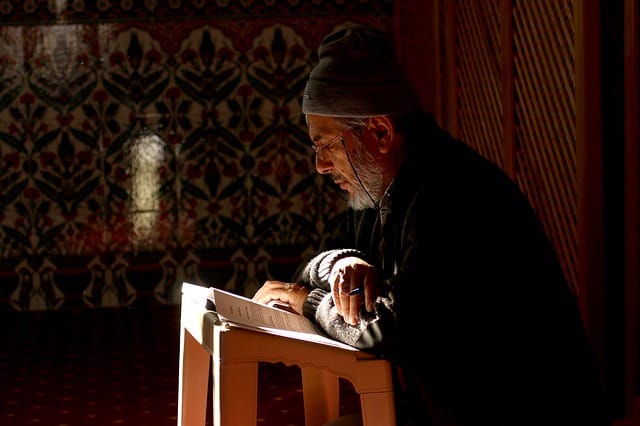What is Islam
Islam is the second largest religion in the world, with over 1.9 billion Muslims following the teachings of Prophet Muhammad (PBUH) and the Quran, Islam’s holy book. At its core, Islam is a monotheistic faith, centered around the belief in Allah (SWT), the Arabic term for God. The main aim of the Islamic faith is submission to Allah’s will and living life in accordance with His guidance. For all Muslims, regardless of their backgrounds, the Five Pillars of Islam serve as the foundation of their spiritual journey, shaping their daily practices, devotion, and dealings with others.
Islamic beliefs encompass foundational principles such as the Usul al-Din and Furu al-Din, which are essential for understanding the faith and its practices.
These pillars are crucial to a Muslim’s spiritual growth and moral development. Together, they cover belief, worship, charity, fasting, and pilgrimage, and are universally practiced by Muslims across the globe, regardless of ethnicity, region, or sect. They are not merely rituals but are essential acts of worship that embody the essence of the Islamic faith. In this guide, we will explore the Five Pillars of Islam, shedding light on their meaning, the rituals involved, and how they are integrated into the life of a Muslim.
The 5 Pillars of Islam
The Five Pillars of Islam are as follows:
- Shahada – The Declaration of Faith
- Salah – The Obligatory Prayer
- Zakat – Almsgiving or Charity
- Sawm – Fasting during the Month of Ramadan
- Hajj – The Pilgrimage to Mecca
Each of these pillars represents a different aspect of faith and worship, intended to strengthen the connection between the believer and Allah. Let’s delve into the significance of each pillar.
The Five Pillars Explained
The Five Pillars of Islam are the bedrock of the Islamic faith, encompassing the core practices that every Muslim is expected to follow. These pillars are not just individual acts of worship but are deeply interconnected, guiding a Muslim’s spiritual and daily life. The Five Pillars are:
- Shahada (Testimony of Faith): The Shahada is the declaration that “There is no god but Allah, and Muhammad is the Messenger of Allah.” This profound statement is the entry point into the Islamic faith, recited by those embracing Islam and reaffirmed by Muslims throughout their lives. It signifies the acceptance of Allah’s oneness and the prophethood of Muhammad.
- Salah (Prayer): Salah involves performing five daily prayers at prescribed times, from dawn to night. These prayers are a direct link between the worshiper and Allah, fostering a sense of discipline, devotion, and mindfulness. Each prayer session includes specific physical postures and recitations, reflecting a Muslim’s submission to Allah.
- Zakat (Giving in Charity): Zakat is the obligatory act of giving a portion of one’s wealth to those in need, typically 2.5% of accumulated wealth annually. This practice purifies one’s wealth and helps alleviate poverty within the Muslim community, promoting social justice and compassion.
- Sawm (Fasting during Ramadan): Sawm is observed during the holy month of Ramadan, where Muslims fast from dawn until sunset. This fasting is a means of spiritual reflection, self-discipline, and empathy for the less fortunate. It is a time for Muslims to renew their faith and seek closeness to Allah.
- Hajj (Pilgrimage to Mecca): Hajj is the pilgrimage to the holy city of Mecca, which every Muslim must undertake at least once in their lifetime if they are physically and financially able. This pilgrimage is a profound act of worship and unity, bringing together Muslims from around the world in a display of faith and equality.
These pillars form the foundation of a Muslim’s life, shaping their worship, ethical conduct, and community interactions.
Importance of the Five Pillars in the Islamic Faith
The Five Pillars of Islam are not merely rituals but are the essence of a Muslim’s devotion and commitment to Allah. They are interwoven into the fabric of daily life, guiding actions, decisions, and interactions within the Muslim community.
Each pillar serves a unique purpose, yet they are all interconnected. The Shahada lays the foundation of faith, while Salah reinforces this faith through daily prayers. Zakat extends this faith into social responsibility, ensuring that wealth is shared and the needy are cared for. Sawm during Ramadan deepens spiritual awareness and self-discipline, and Hajj unites Muslims globally, reinforcing the sense of belonging to a larger Islamic community.
These pillars are based on the teachings of the Quran and the Hadith, providing a comprehensive framework for living a life that is pleasing to Allah. They remind Muslims of their duties to Allah and to each other, fostering a sense of unity, compassion, and purpose. By adhering to the Five Pillars, Muslims strengthen their relationship with Allah and contribute positively to the well-being of their community.
History and Significance of the Five Pillars
The Five Pillars of Islam have a profound historical and spiritual significance, rooted in the teachings of Prophet Muhammad and the early Islamic community. These pillars were established by the Prophet Muhammad as essential practices for all Muslims, ensuring a cohesive and disciplined approach to worship and community life.
The Five Pillars are mentioned in the Quran and elaborated upon in the Hadith, reflecting their importance in the Islamic faith. They have been practiced by millions of Muslims for centuries, serving as a timeless guide for living a life devoted to Allah.
Historically, the Five Pillars have played a crucial role in unifying the Muslim community, providing a common framework for worship and ethical conduct. They have helped shape the identity of the Islamic faith, emphasizing the importance of submission to Allah, compassion for others, and the pursuit of spiritual growth.
Today, the Five Pillars continue to be a cornerstone of the Islamic faith, practiced by millions of Muslims around the world. They offer comfort, guidance, and a sense of belonging, reminding Muslims of their shared beliefs and responsibilities. By adhering to these pillars, Muslims honor the legacy of Prophet Muhammad and reaffirm their commitment to living a life that is pleasing to Allah.
In conclusion, the Five Pillars of Islam are the fundamental practices that define the Islamic faith. They are essential for every Muslim, providing a structured path for worship, moral conduct, and personal development. Through these pillars, Muslims strengthen their relationship with Allah and contribute to the harmony and well-being of the global Muslim community.
1. Shahada (Declaration of Faith in Prophet Muhammad)
The Shahada is the first and most fundamental of the Five Pillars. It is the declaration of faith, expressed in the statement: “There is no god but Allah, and Muhammad is His Messenger.” This statement is known as Tawhid, the affirmation of the oneness of God, which lies at the heart of Islamic belief.
By reciting the Shahada, a Muslim acknowledges the singularity of Allah (SWT) and recognizes Muhammad (PBUH) as the final prophet, sent to guide humanity. This declaration is not merely verbal but signifies complete submission to Allah’s will and acceptance of the Islamic faith. It forms the foundation upon which a Muslim’s relationship with Allah is built, influencing every aspect of their life, from their beliefs to their actions.
For converts to Islam, publicly reciting the Shahada is the first step in embracing the faith, signifying their entry into the global Muslim community (Ummah). For practicing Muslims, the Shahada is repeated daily in their prayers, serving as a constant reminder of their commitment to the Islamic faith.
2. Salah (Obligatory Prayer)
Salah, or the daily prayers, is the second pillar of Islam and a central act of worship. Maghrib, the evening prayer, is one of the five daily prayers. Muslims are required to pray five times a day at specific times: Fajr (before dawn), Dhuhr (midday), Asr (afternoon), Maghrib (just after sunset), and Isha (night). This ritual prayer is an obligation for all adult Muslims and provides a direct connection between the worshiper and Allah.
The act of Salah goes beyond physical movements and recitation; it is a form of spiritual discipline and a way for Muslims to stay mindful of their Creator throughout the day. Each prayer involves a series of physical postures, including standing, bowing, and prostrating, symbolizing a Muslim’s humility and submission to Allah. Through these prayers, believers purify their hearts and seek closeness with God.
Before performing Salah, Muslims must perform Wudu, a ritual purification where they wash their face, hands, arms, and feet. This purification is a preparation for the sacred act of prayer, ensuring that both body and spirit are clean.
Through the five daily prayers, Muslims structure their day around worship, constantly renewing their relationship with Allah. No matter where they are in the world, the Salah unites Muslims in their devotion and fosters a deep sense of community and purpose.
3. Zakat (Almsgiving)
Zakat, or almsgiving, is the third pillar of Islam and is a financial obligation that requires Muslims to give a portion of their wealth to those in need. The word Zakat means “to purify” or “to cleanse,” and this charitable act purifies a Muslim’s wealth by redistributing it among the less fortunate. It is an essential aspect of Islamic ethics and a means of fostering compassion, reducing social inequality, and building a sense of responsibility within the Islamic community.
Muslims are required to give 2.5% of their accumulated wealth each year to eligible recipients, including the poor, orphans, and those in debt. This wealth is taken from surplus income, meaning those who are struggling financially are not required to pay Zakat.
The purpose of Zakat is twofold: it helps alleviate poverty and ensures that wealth circulates within the community rather than being hoarded by a few individuals. By giving Zakat, Muslims are reminded of their moral duty to support those less fortunate and the importance of sharing their blessings with others.
Beyond Zakat, Muslims are encouraged to give Sadaqah, which is voluntary charity given at any time and in any amount. Together, Zakat and Sadaqah promote social welfare and reflect the Islamic belief in taking care of the less privileged.
4. Sawm (Fasting during the Holy Month of Ramadan)
Sawm, or fasting, is the fourth pillar of Islam and is observed during the holy month of Ramadan. Ramadan, the ninth month of the Islamic calendar, is a time of spiritual reflection, heightened devotion, and self-discipline. During this month, Muslims who are physically able to fast are required to abstain from food, drink, and other physical needs from dawn until sunset, with the length of the fasting period varying based on the daylight hours.
Fasting during Ramadan is more than just refraining from eating and drinking; it is a time to cleanse the soul, practice self-restraint, and focus on spiritual growth. The act of fasting serves as a reminder of the struggles of the poor and fosters empathy for those who are less fortunate. It is also a time for Muslims to practice patience, generosity, and gratitude for Allah’s blessings.
The fast is broken each day at sunset with a meal known as Iftar, typically starting with dates and water, followed by a larger meal. Before dawn, Muslims partake in Suhoor, a pre-dawn meal to sustain them throughout the day.
Ramadan concludes with Eid al-Fitr, a celebratory festival marking the end of the fast. On this day, Muslims gather for communal prayers, share meals with family and friends, and give Zakat al-Fitr, a special charity given at the end of Ramadan to ensure that those in need can also celebrate.
5. Hajj (Pilgrimage to Mecca by the Muslim Community)
Hajj, the fifth and final pillar of Islam, is the pilgrimage to the holy city of Mecca, which every Muslim who is physically and financially able must perform at least once in their lifetime. Hajj takes place during the final month of the Islamic calendar, Dhu al-Hijjah, and is a profound act of worship and submission to Allah.
The pilgrimage is a series of rituals that commemorate the actions of Prophet Ibrahim (Abraham) and his family, who are revered in Islam for their unwavering faith. Pilgrims wear simple white garments known as Ihram, symbolizing purity, equality, and the stripping away of worldly distinctions such as wealth, status, and race.
The major rituals of Hajj include circling the Kaaba (Tawaf), walking between the hills of Safa and Marwah (Sa’i), and standing in prayer on the plains of Arafat, which symbolizes the Day of Judgment. Pilgrims also perform the symbolic stoning of the devil in Mina and offer an animal sacrifice during the festival of Eid al-Adha.
Hajj is not only a spiritual journey but also a transformative experience that reinforces a Muslim’s faith and brings them closer to the global Muslim community. It is a reminder of the ultimate submission to Allah and the unity of the Ummah.
Conclusion
The Five Pillars of Islam form the foundation of a Muslim’s life, providing a structured path for worship, moral conduct, and personal development. These pillars remind Muslims of their devotion to Allah, their responsibilities toward others, and the need for self-discipline and generosity. Through the pillars, Muslims strengthen their relationship with Allah and benefit society as a whole. Whether it is through daily prayer, fasting during Ramadan, giving to the poor, or undertaking the pilgrimage to Mecca, each pillar contributes to the spiritual and communal harmony of the Islamic faith.












